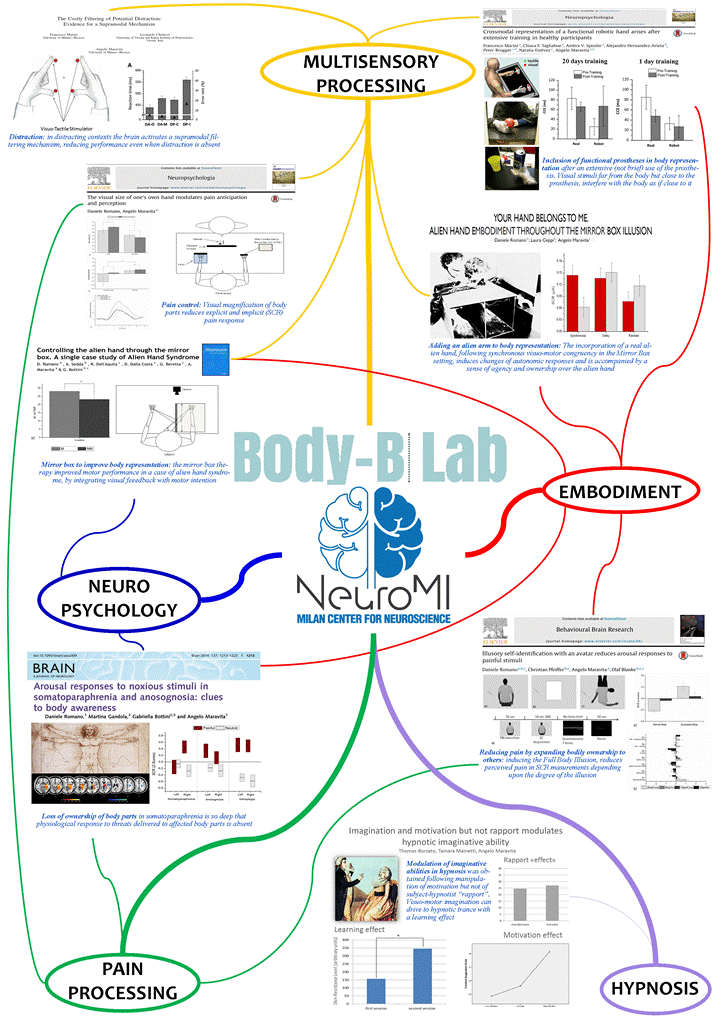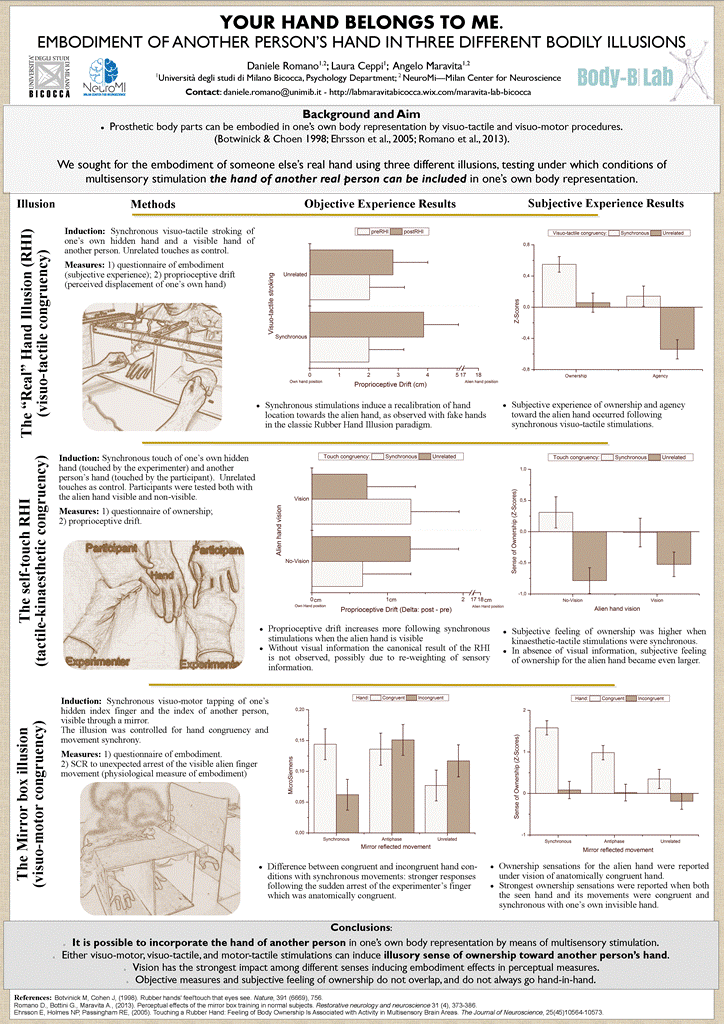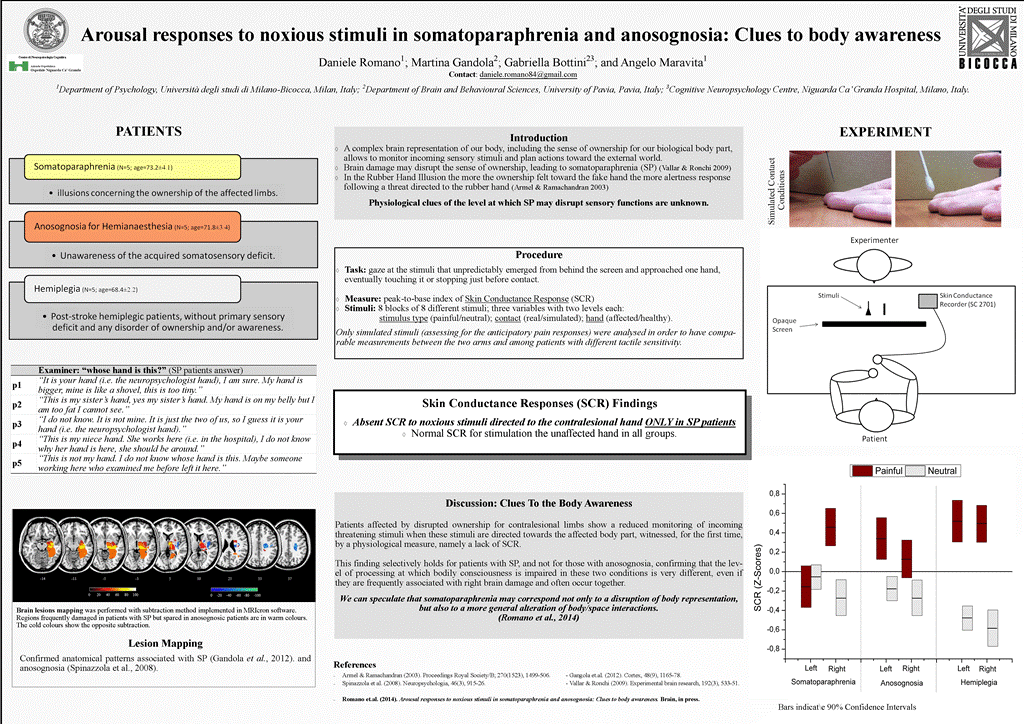Main Research Areas:
Neuroscience and Neuropsychology of Body Representation
Body Representation
The body holds a complex representation in the brain, due to its unique role in sensory-motor experience.
Our lab is devoted to the study of the mechanisms underpinning more conscious aspects of body representation, such as being the owner of one's own body, actions and sensations, as well as more automatic and implicit processess such as action programming and stimulus monitoring in healthy and brain-damaged people.
The space surrounding our body, namely the peripersonal space, is the space of action, where body and extrapersonal objects interact for manipulation or avoidance purposes. We study the plastic features of this section of space, whose extension can change following sensory-motor experience. We are strongly interested in its peculiar properties of multisensory integration of body-related visual, acoustic and tactile stimuli.
Peripersonal Space
Pain Processing
Among the multiple sensory experience that we can have, pain is a very pervasive one. Multisensory integration and body representation have been proposed to be crucial for pain processing.
We are interested in how pain can be critically modulated by body representation and its manipulation with a range of possible interventions that go from visual distortion, to neurostimulation, hypnosis, biofeedback and meditation in helthy people, amputees and neurologically impaired individuals.
July 5th 2019
BRNet 2019
May, 31st 2018
LAb GITA
May, 17th 2018
Lab Meeting
December 20th 2017
Lab - Eating
May 18th, 2017
Lab Meeting with Katerina Fotopoulou
September 30th - October 1st 2016
Meet Me Tonight 2016
Recent Activities
Breaking News :
 MMT16 |  Lab Activities |  Somatoparaphrenia |  MMT16 |  Liepzig 2016 |  MMT16 |  Mirror Box |
|---|---|---|---|---|---|---|
 ESCoP 2015 |  MMT16 |  Robot hand |  EWCN 2014 |




